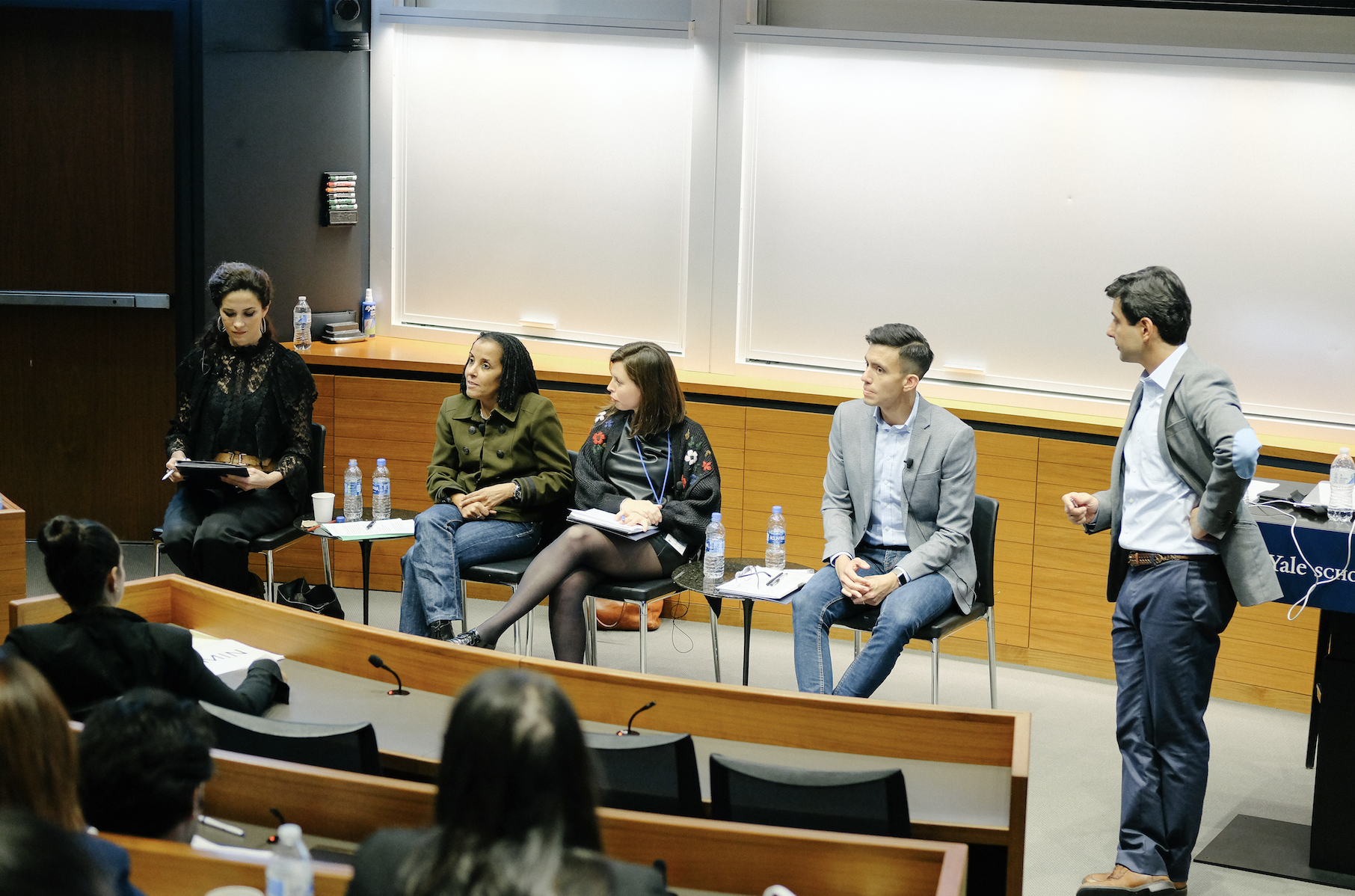
Woraphot Ping Kingkawkantong
Diplomats, community organizers, lawyers, faculty members and students convened at Evans Hall on Friday for the Yale School of Management’s inaugural Hispanic and Latin American Conference.
The conference was organized by members of the Association of Hispanic and Latin American Students and explored the theme of “leading through uncertainty.” The event featured discussions about the issues and opportunities facing Hispanic-Americans and the lessons the United States — home to the second largest Spanish-speaking population in the world — could learn from Latin America. In keynote addresses and panel discussions that took place throughout the day, speakers and attendees grappled with various socioeconomic and political challenges common to the Americas, from internal political instability to barriers to smooth immigration and trade.
“We are in an age of revolutions in many aspects of the international order, which does not respond to the needs of modern countries,” said Sergio Silva do Amaral, Brazilian ambassador from Brazil to the United States, during his keynote address, delivered via Skype to an audience of around 100 attendees. “But what is important is that despite all these changes, Brazil and many other countries share one thing: the resilience of democratic institutions.”
Seven Latin American countries — Brazil, Colombia, Venezuela, Costa Rica, Cuba, Mexico and Paraguay — will elect new presidents this year. Amaral said that despite evident political and economic uncertainty in Latin America, he is optimistic about the future of the region, which he contended would undergo a “clean-up process” during the forthcoming presidential elections. He pointed to Brazil’s gradual recovery from two years of unprecedented economic recession since 2015 and extensive anti-corruption campaigns in the country as signs of change and progress.
Speakers who participated in a panel on immigration later in the day — moderated by Yale economics professor Lorenzo Caliendo — criticized the Trump administration for its immigration policies with respect to Latin America.
“Dealing with migration is the issue of the century,” said Claudia Edelman, special advisor at the United Nations, noting that roughly 250 million people around the globe are migrants. She also pointed out that a third of the 300,000 undocumented immigrant minors who entered the United States in the past year are in jail and underscored the need to empathize with immigrants and work toward resolving the challenges facing them.
Kica Matos, director of immigrant rights and racial justice at the Center for Community Change, said there was a 42 percent increase in the number of arrests of undocumented residents in the year since President Donald Trump was elected. She attributed this increase to the removal of checks and balances on the U.S. Immigration and Customs Enforcement agency and the reinstatement of the 287G program, which trains and authorizes local police to carry out immigration enforcement.
“This is a very racist agenda that has been advanced by an administration that is not afraid to advance what many of us call a white supremacist framework,” Matos said. “Forget about a fair immigration system, what we are doing now is trying really hard to protect the lives who are most vulnerable in our communities.”
Nancy Sanchez — executive director of the Kaplan Educational Foundation, who spoke at the conference — told the News she appreciated that the event provided a forum to discuss both the issues and the opportunities in the Latino community.
According to Sanchez, the greatest challenges facing the Hispanic-American community in the domain of education include a lack of access to information about applying to institutions of higher education and the prohibitive costs involved in the application process.
School of Management Acting Dean Anjani Jain, who opened the conference by greeting the attendees in Spanish, said the conference was emblematic of what the School of Management aspires to do.
“We are a business school most distinctly global in the educational experiences we can offer and so much of that comes from the collective experiences and endeavors of our students,” Jain said. “Even an academic like me realizes fully that to be good at what you need to do professionally, the classroom can only take you so far. And the gap between what the classroom can teach you and what you need to be good at is filled in large measure by activities like this.”
Victor Padilla SOM ’15, who moderated a panel on governance and currently serves as global leadership fellow at the World Economic Forum, told the News he learns something new every time he returns to School of Management.
“I think the SOM is like an ongoing Davos gathering because we have all these great speakers coming in and sharing their insights,” he said, referring to the annual meeting of the World Economic Forum in Davos, Switzerland.
Padilla added that he would urge Yalies to remember the motto of the school — “leaders for business and society” — even after they graduate and enter the professional world and to keep in mind that the goals of public service and business can be achieved simultaneously.
The conference was organized by School of Management students from 10 countries, including Katharina Davies SOM ’18 and Natalia Ariza SOM ’18, co-chairs of the conference. Ariza said she was inspired to make the event a reality when Ted Snyder, the School of Management dean, asked her during her admissions interview about the impact she wanted to make at Yale.
“It was an honor to create, for the first time, a space and day revolving around my region of origin and my Hispanic-American community,” Ariza said.
Saumya Malhotra | saumya.malhotra@yale.edu







